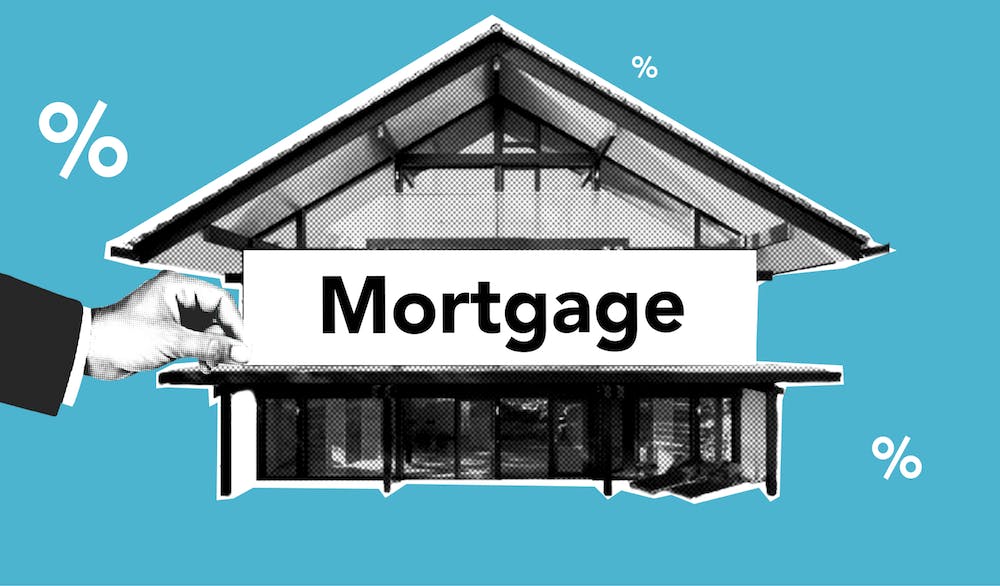If you have a lot of high-interest debt, such as credit cards or personal loans, you might be wondering how to pay it off faster and save money on interest. One option that you may have heard of is using your home equity to consolidate your debt. But what does that mean and how does it work?
 Home equity is the difference between the value of your home and the amount you owe on your mortgage. For example, if your home is worth $300,000 and you owe $200,000 on your mortgage, you have $100,000 in home equity. You can use this equity to borrow money at a lower interest rate than other types of loans, such as a home equity loan or a home equity line of credit (HELOC).
Home equity is the difference between the value of your home and the amount you owe on your mortgage. For example, if your home is worth $300,000 and you owe $200,000 on your mortgage, you have $100,000 in home equity. You can use this equity to borrow money at a lower interest rate than other types of loans, such as a home equity loan or a home equity line of credit (HELOC).
 A home equity loan is a lump sum of money that you repay over a fixed term, usually 10 to 15 years. A HELOC is a revolving line of credit that you can draw from as needed, up to a certain limit, and repay over time. Both options allow you to use the money for any purpose, including paying off other debts.
A home equity loan is a lump sum of money that you repay over a fixed term, usually 10 to 15 years. A HELOC is a revolving line of credit that you can draw from as needed, up to a certain limit, and repay over time. Both options allow you to use the money for any purpose, including paying off other debts.
 The main benefit of using your home equity to consolidate your debt is that you can lower your monthly payments and save money on interest. For example, if you have $20,000 in credit card debt at an average interest rate of 18%, you would pay about $600 per month and over $11,000 in interest over five years. If you use a home equity loan or HELOC at an interest rate of 6%, you would pay about $390 per month and less than $3,500 in interest over five years.
The main benefit of using your home equity to consolidate your debt is that you can lower your monthly payments and save money on interest. For example, if you have $20,000 in credit card debt at an average interest rate of 18%, you would pay about $600 per month and over $11,000 in interest over five years. If you use a home equity loan or HELOC at an interest rate of 6%, you would pay about $390 per month and less than $3,500 in interest over five years.
 However, there are also some risks and drawbacks that you should be aware of before using your home equity to consolidate your debt. The most important one is that you are putting your home at risk. If you fail to repay your home equity loan or HELOC, the lender can foreclose on your home and sell it to recover their money. This means that you could lose your home and still owe money on your original mortgage.
However, there are also some risks and drawbacks that you should be aware of before using your home equity to consolidate your debt. The most important one is that you are putting your home at risk. If you fail to repay your home equity loan or HELOC, the lender can foreclose on your home and sell it to recover their money. This means that you could lose your home and still owe money on your original mortgage.
 Another drawback is that you may end up paying more in fees and closing costs than you would save on interest. Depending on the lender and the type of loan or line of credit, you may have to pay for an appraisal, title search, origination fee, application fee, annual fee, and other charges. These fees can add up to thousands of dollars and reduce the amount of money that you actually save by consolidating your debt.
Another drawback is that you may end up paying more in fees and closing costs than you would save on interest. Depending on the lender and the type of loan or line of credit, you may have to pay for an appraisal, title search, origination fee, application fee, annual fee, and other charges. These fees can add up to thousands of dollars and reduce the amount of money that you actually save by consolidating your debt.
 Finally, using your home equity to consolidate your debt may not solve the underlying problem of overspending or living beyond your means. If you use your home equity to pay off your credit cards and then rack up more debt on them, you will end up in a worse situation than before. You will have more debt, less equity in your home, and higher monthly payments.
Finally, using your home equity to consolidate your debt may not solve the underlying problem of overspending or living beyond your means. If you use your home equity to pay off your credit cards and then rack up more debt on them, you will end up in a worse situation than before. You will have more debt, less equity in your home, and higher monthly payments.
 Therefore, before using your home equity to consolidate your debt, you should carefully weigh the pros and cons and consider other alternatives. You should also make a realistic budget and stick to it, so that you can avoid getting into more debt in the future.
Therefore, before using your home equity to consolidate your debt, you should carefully weigh the pros and cons and consider other alternatives. You should also make a realistic budget and stick to it, so that you can avoid getting into more debt in the future.

